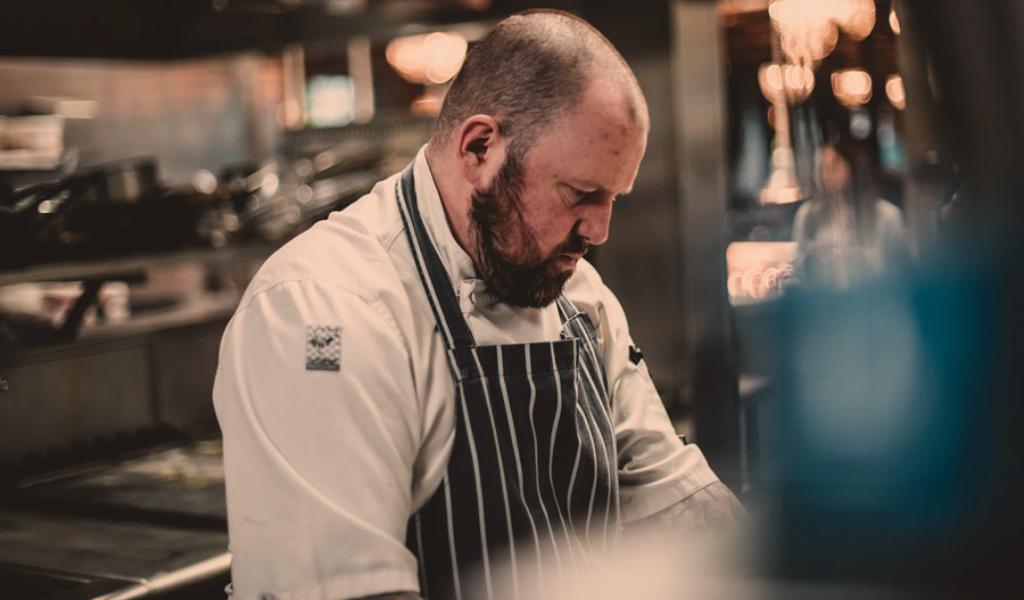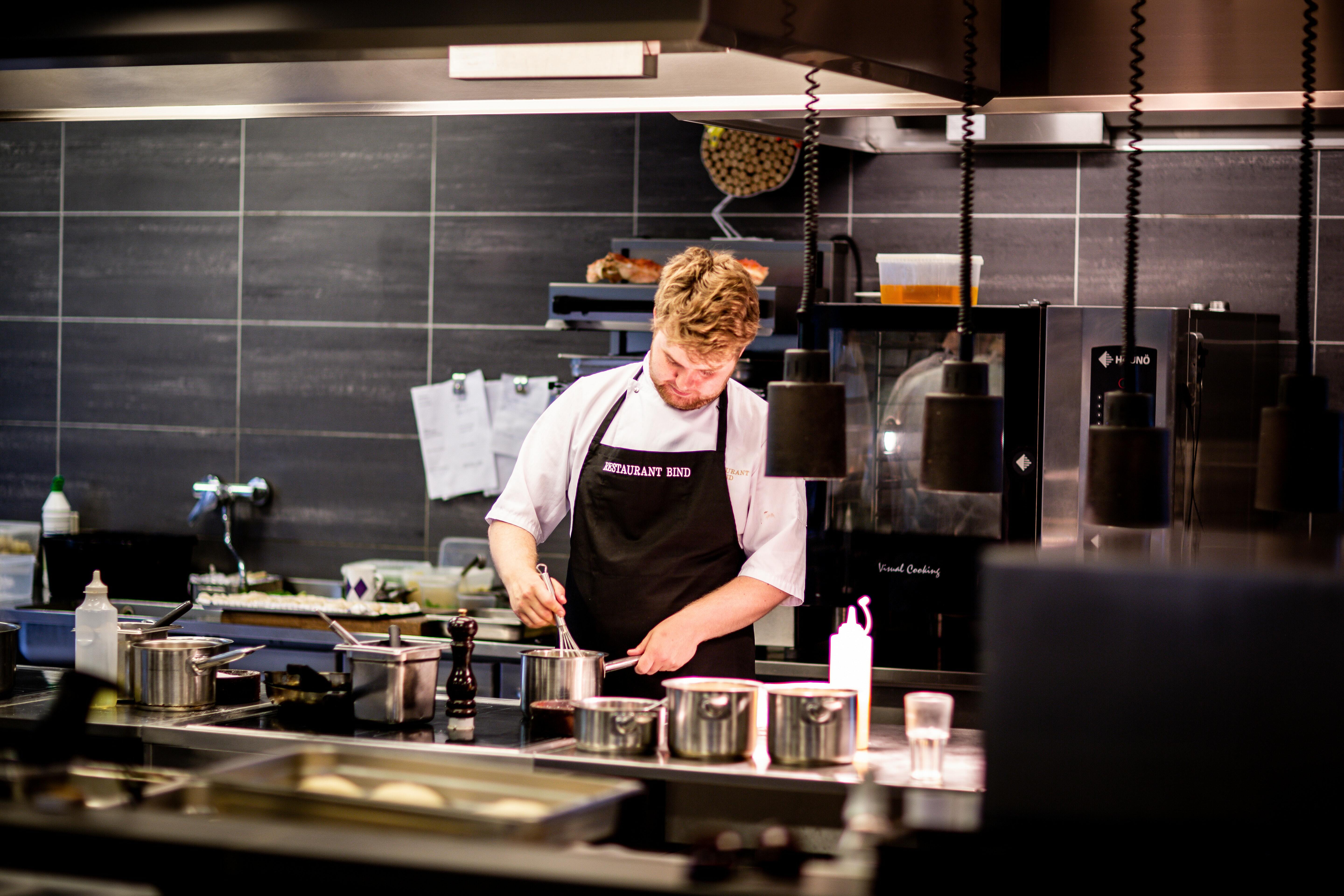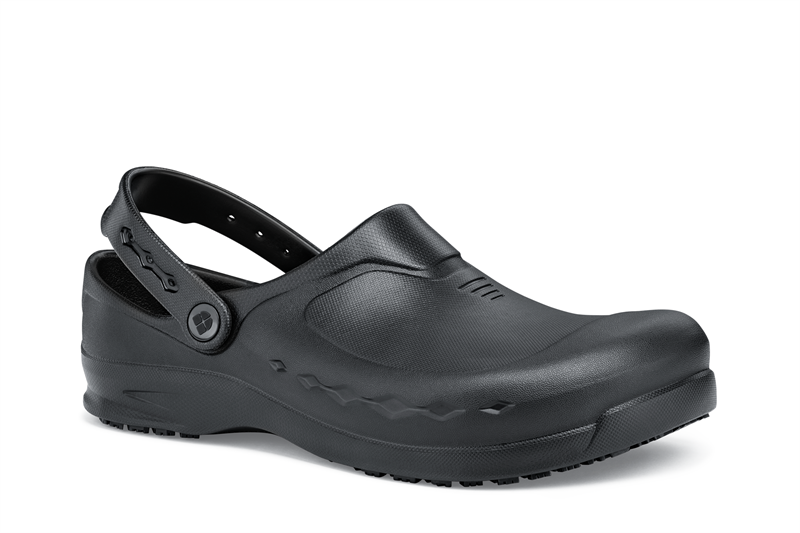Many restaurant staff positions require different levels of expertise. For example, a bartending position may require prior experience since making a cocktail well is a learned skill, and the same goes for the chef at the saute station (where the most complicated dishes are prepared); however, there are kitchen positions that can be trained and are perfect for those with no experience. Often upscale restaurants want lots of experience, but small to mid-size restaurants, food trucks, and cafes are happy to take on newbies.

So once you’ve landed your new job, here are some tips for survival when working in a kitchen with no experience.
Ask Questions, Take Notes

When you’re new to anything, it’s best to take notes at first and ask questions if you need clarity later. Don’t be afraid to ask questions. It’s better to get something right by asking five questions than to try and wing it and make a mistake; that being said, however, you’re bound to make a mistake or ten when you’re starting out, so don’t be afraid to make mistakes.
Listen to Directions and Advice
When the head chef or another member of the kitchen staff is giving you directions or advice, pay attention and listen. Take notes too if it will help you remember. Follow directions deliberately and carefully. If someone gives you advice, be open to it. Be open to criticism too. Learn from everything you can. When you’re new in a kitchen, in the first few weeks you want to keep under the radar. Do your job, have a good work ethic, and try and go unnoticed (i.e. don’t make any glaring mistakes that may get you reprimanded, or, worse, fired). But every chef had to start at the bottom, so most people will be understanding of your situation.
Be Clean and Organised

One of the ways to stay as stress free as possible when you’re new to the kitchen is to be clean and organised. As you’re dealing with food and utensils and potentially customers, it’s really important to keep washing and sterilising your hands regularly to avoid possible cross contamination. When you prep veggies, always discard the waste (in a waste bowl for ease of action), and clean your knives and chopping board and put everything away. If you’re cooking, clean up as you go. Do as many tasks as you can whilst other items are cooking, but always stay neat and tidy. You’ll often get recognition for the wrong reasons if your station is a mess, but if you’ve learned to be tidy, you’ll get props from those who notice.
Don’t Brown Nose
When you’re new, often your first job is as a prep or pantry cook. You’ll often spend time washing dishes, washing veg, and peeling vegetables, but these unglamourous jobs will give you time to learn. If you have a spare few minutes, try and shadow one of the bigger chefs and see where you can help. Doing your initial job well will get you noticed. If you can start doing more, and taking on more responsibility, you may move up. It’s important not to try and suck up to the head chef or be overly awed or complimentary. You will only gain favour by working hard and doing your job well; you cannot flatter yourself to the top!
It’ll Be Difficult, Keep Going

Read more : 3 Ways To Hide Your Trash Can in Your Kitchen
Many chefs note how difficult the job is when they first started. You’ll have long hours. You’ll be on your feet most of the day. Working in a kitchen is not for the faint-hearted. The kitchen moves at a fast and, sometimes, overwhelming pace, but that’s okay. Even experienced chefs cannot always keep up. Keep going! You’ll eventually get used to the pace. You’ll get faster, your calves will gain strength, and maybe it won’t get easier per se, but you’ll have the stamina and work ethic to stick it out.
Celeb Advice: What’s it like in the kitchen?
Monica Galetti, London, UK
MasterChef Judge, Restaurateur, and senior sous-chef (for 16 years) at La Gavroche in London

On female chefs and how it takes dedication to stick it out: “The problem is that at a certain point women have to decide how much they want their career [versus] having a family and spending time with family,” Galetti told the Radio Times. “That’s it. There’s no BS about it – the truth is, you’ve got to put it first to do well. I’ve seen many amazing chefs, girls, come into the kitchen and then give it up to be with their boyfriend. Would he do that for her? Hmm…”
On how valuable women are in the commercial kitchen: “Some of the best chefs in my company are women – they bring a fabulous balance and an intelligent approach. The only female chef I remember from when I was younger, who stood the test of time, is Angela Hartnett. When she came to do a trial, Gordon [Ramsay] said, ‘Right, let’s give her a job. Let’s have a sweepstake – how long will she last?’ No one gave her beyond a month; I gave her two weeks. She lasted a lot longer than that! Solid girl.”
Follow her on Twitter and Instagram: @MGaletti01 and galettigram
Massimo Bottura, Modena, Italy
Chef patron of Osteria Francescana, 3 Michelin star restaurant in Modena, Italy, and owner of Franceschetta 58 with Marta Pulini.

On the importance of chefs learning about food and tradition: “To do contemporary cooking, you have to know everything and forget about everything. First of all, you have to know everything. If you don’t know things, you cannot talk. I’m always thinking about Bob Dylan singing, ‘The times they are a-changing.’ But I cannot evolve tradition if I don’t know the tradition. I cannot do contemporary food if I don’t travel to Tokyo, to Copenhagen, or Lima. What kind of potato? What kind of parmigiano? What kind of fish? How has the tuna been caught? If you don’t understand those kinds of things, touch the ingredients, feel them, you cannot do what we do. If I don’t know everything about balsamic vinegar, if I don’t know what kind of reaction the must has with the cherry wood, or juniper wood…”
Advice for young chefs: Trying to influence young chefs is a beautiful thing and a great responsibility. I usually tell them not to be in a rush to get into the kitchen. I tell them to study a lot and to find a deep interest. In the future, this interest can become passion, and through passion you can transfer emotions to food. I tell young chefs to always have their feet on the ground… to travel with their eyes and ears open and absorb everything, but never forget who they are or where they come from.
Follow him on Twitter and Instagram: @massimobottura and massimobottura
Akrame Benallal, Paris, France
French-Algerian two Michelin star chef and owner of Akrame in Paris’s 16th arrondissement.

On working with the right team: ““You can be a big chef, but if you don’t have people who want to work with you, it is a bit difficult. So you must have passion for what you do, and all the team must want to work with you. They have to look at what you do and want to give you 200 per cent. . . . I always change. . . . I like to be creative. I’m like Louboutin. I always like to create. So the staff in my team have to accept this.”
When asked if he shouts in the kitchen (like on Hell’s Kitchen): “No, this one is [not true]. This is prehistoric stage. If your boss shouts at your every day, do you think you can do your job? This is just for show. The kitchen is love. How you give love to your staff. Too many chefs are stressed already, so why stress your people? If you get fed with [negativity], you finish with [negativity]. You know what I do? I tell my staff, “you see what I did? I want you to make more good than me.”
Follow him on Twitter and Instagram: @akrameb and akrame_benallal
Alfons Schuhbeck, Munich, Germany
Alfons Schuhbeck who was born in Traunstein, Upper Bavaria is one of Germany’s top chefs, restaurateurs (one of his restaurants is Südtiroler Stuben), celebrity chef, businessman, and author of My Bavarian Cookbook (Meine bayerische Kochschule). In 1983, he was one of only three chefs outside of France to be awared a Michelin star.

On the importance of keeping going in the profession: [Original in German]: “I’m not at retirement age [at 68]. I am in the youth of my age. At 90, I will do a half-day. Besides, I find it important that you do not stop from day to day. If you cannot make any decisions for yourself as you are accustomed to, you fall into a hole. Then you only meet with a few people like yourself and talk about the past. But those who speak only of the past have nothing to do with the future. No, you need your goals.”
On why women are underrepresented in the kitchen: [Original in German] “Women in the kitchen create a better climate. Then the guys behave more decently and the sound is not quite so rough. The [women] cooks I was allowed to meet were sometimes more loving and creative than their colleagues. So qualifications [and expertise] is not [the issue]. But the women have another problem: when they are between 20 and 30 years old, they [often] marry. And then [have] children. But mothers cannot spend 18 hours a day in a Michelin-star kitchen. This is for me the main reason why women are unfortunately underrepresented in this area.”
Follow him on Twitter and Instagram: @SchuhbeckAlfons and schuhbeck
The Importance of Kitchen Safety
Slips and trips are the most common workplace accident, and when you work in a kitchen with no experience, you might not realise that chefs need specialty footwear. There are a variety of slip-resistant, water resistant shoes with shoe traction and specialty features to keep you safe at work through those first shifts. It’s important to invest in a pair of high-quality chef shoes to get you home safely and keep you comfortable all day long. Find out about our new shoe technology too that’s designed to keep you safe. Click here.




Want to find out more about becoming a chef and landing that first job?
Take a look at our chef guide that lets you know all you need to know about becoming a chef.
Source: https://gardencourte.com
Categories: Kitchens


